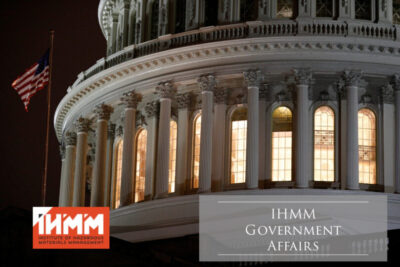We are pleased to let you know that, yesterday, Rep. Abigail Spanberger (D-VA), joined by Reps. Fred Upton (R-MI), Dean Phillips (D-MN), and Rob Wittman (R-VA), introduced a new version of the Freedom to Invest in Tomorrow’s Workforce Act. Sens. Amy Klobuchar (D-MN) and Mike Braun (R-IN) introduced identical companion legislation on the Senate side. Bill numbers have not yet been assigned, but we will let you know when they are. We are attaching to this email the version of the bill that was filed in the House. [Draft Legislation Here]
This bipartisan legislation, with new language drafted by the PCC, of which IHMM is a member, would permit beneficiaries of 529 savings plans to use funds in those accounts to cover costs associated with workforce training and obtaining or maintaining postsecondary credentials, including professional certifications. As we reviewed the previous version of this legislation introduced during the last Congress (also based on a PCC draft), we determined that it would be prudent to refine some of the bill language to eliminate any ambiguity about whether expenses associated with high-quality certifications/credential programs that are not required for licensure would be eligible under the bill. That has always been our intention in the bill, but the definitions in the prior version of the bill incorporated definitional language from an existing statute, the Workforce Innovation and Opportunity Act (WIOA), that has not been definitively interpreted. We, therefore, added language to the definition of “qualified higher education expenses” to clarify that programs accredited by the two gold-standard accreditation bodies (NCCA and ANSI) are included as recognized postsecondary credentials, regardless of whether such certification is required for state licensure of an occupation or not. We have also added language that would permit IRS, consulting with U.S. Department of Labor, to define the term “recognized postsecondary credential” for purposes of the bill, so that other reputable certification organizations that have not sought accreditation from NCCA or ANSI but that nonetheless are legitimate and important career credentials could be recognized as eligible. We think the approach of calling for regulatory guidance on the criteria for recognizing such credentials could avoid any controversy that may stem from questions related to the quality of any particular certification/credential.
Over the coming days, we will coordinate with the bill sponsors on a strategy to advance the legislation through Congress. After we have those conversations, we’ll provide some suggestions to PCC members on how you can best engage in advocacy to create momentum for this legislation. In particular, we are sharing a letter of support for the bill (attached) with the bill sponsors, which you all can either attach to your own communications with lawmakers or use a template for such communications. You can also use the key points/messages made in the letter as the basis for template communications that you can share with individual members for purposes of grassroots advocacy.
We are excited about this important milestone and look forward to working with you all to achieve passage of this important legislation for the certification community and for Americans seeking to open doors to job opportunity through obtaining certification credentials.



